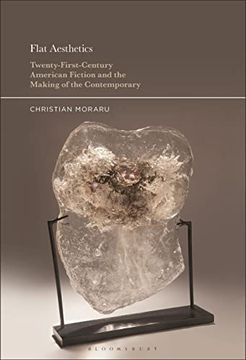Flat Aesthetics: Twenty-First-Century American Fiction and the Making of the Contemporary (en Inglés)
Reseña del libro "Flat Aesthetics: Twenty-First-Century American Fiction and the Making of the Contemporary (en Inglés)"
Flat Aesthetics seeks to secure a more granular and ontologically demotic handle on the contemporary in American literature. While contemporaneity can be viewed as "our" period, Christian Moraru approaches the contemporary as some-thing made by things themselves. The making of the contemporary is variously restaged by the body of fictional prose under scrutiny here. Thus, this corpus itself participates in the making of contemporaneity. In dialogue with object-oriented ontology and various new materialisms, Moraru contends that the contemporary does not preexist objects or the novels featuring them; it is not their background but an outcome of things' self-presentation. As objects, beings, or existents present themselves in the present, in our "now," they foster thing-configurations that together compose the form of, and essentially make, the contemporary - the present's cultural-material signature, as Moraru calls it. To decipher this signature, Flat Aesthetics provides a cross-sectional reading of postmillennial American fiction. Discussed are solely post-2000 works by writers who have also established themselves over the past two decades or so, from Nicole Krauss, Michael Chabon, and Ben Lerner to Colson Whitehead and Emily St. John Mandel. Their output, Moraru claims, bears witness to the onset of a "flat" aesthetics in American letters after September 11, 2001. Organized into five parts, the books canvases objectual constellations of contemporaneity shaped by material dynamics of language, museality and display, spatiality, zombification and thing-rhetoric, and post-anthropocentric kinship.

